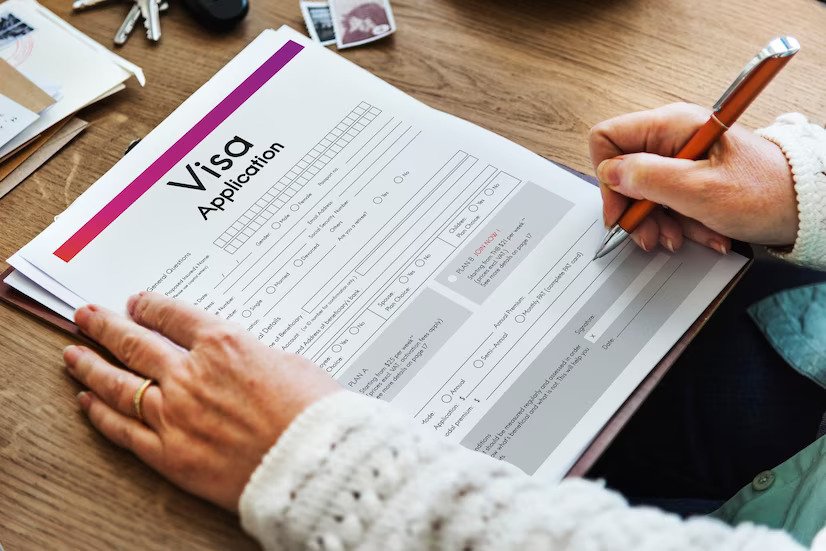H4 EAD Application: Everything You Must Know

If you have an H4 visa, you may be entitled to get the H4 Employment Authorization Document (EAD). This document will allow you to work legally in the United States while your H4 visa is valid.
But among the biggest concerns for H4 visa holders is the H4 EAD processing time. There may be several factors that can cause the delay, or even denial, of your application.
Read on to discover everything you need about applying for H4 EADs.
What Is H4 EAD?
An EAD allows you to work for a specific employer if you are in the United States on an H4 visa, which is given to the parent or spouse of an H1B visa holder.
Here are the benefits you can enjoy if you have H4 EAD:
- Work full-time or part-time for an employer in any position or field
- Receive a social security number
- No restrictions on employment or minimum wage requirements
- Start your own business of any kind
- Apply for a driver’s license
- Travel outside of the U.S. and re-enter without having to obtain a new visa
Who Is Eligible For An H4 EAD?
To be eligible, the H4 visa holder is the spouse of an H1B visa holder who is either:
- The beneficiary of an approved Form I-140, or
- The H1B visa holder must have been granted an extension of their H1B status beyond the initial six-year limit based on AC21, the American Competitiveness in the Twenty-first Century Act.
Moreover, the H4 visa holder must be in the U.S. with valid H4 status and not maintain any other nonimmigrant status.
Related: Visa Sponsorship – Everything You Need To Know About It In 2021
How To Apply For An H4 EAD

The application process for an H4 EAD involves the following steps:
Step 1: File Form I-765
The first step is to file Form I-765, Application for Employment Authorization, with the U.S. Citizenship and Immigration Services (USCIS).
Along with the form, you must submit the required supporting documents. These include a copy of the following:
- Form I-94 showing admission of H-4 status
- Your passport or birth certificate
- Your marriage certificate
- Form I-140 or H-1B status of the H1B immigrant
- Your last EAD (if applicable)
Step 2: Pay the filing fee
As of 2023, the filing fee for Form I-765 is $410. A biometric services fee of $85 is also required in some eligibility categories.
Note: These fees are non-refundable and final, even if your application is denied or if you withdraw your request.
Step 3: Wait for the processing
After you submit your application, wait for USCIS to process it. Generally, the estimated processing time for H4 EAD applications is 3 to 6 months.
But take note that processing times can vary. You can check the current processing times on the USCIS website.
Step 4: Receive your EAD
Once you receive an approval notice, you’ll then receive your H4 EAD card with an expiration date. You can find it under the “Card Expires” section of the card.
In general, you can only work through the expiration dates on your EAD. But if you still be eligible for the employment authorization, you may file for a renewal EAD and submit another I-765 Form not more than 180 days before your original EAD expires.
You may also be qualified for an automatic extension.
FAQs About H4 EAD Application
Here are the frequently asked questions and answers about H4 EAD:
What factors affect the H4 EAD processing time?
The H4 EAD processing time is affected by a number of factors, including:
- The number of applications currently being processed
- The complexity of your application
- The accuracy of your application
Additionally, the location where your application is being processed can also impact the processing time. USCIS processing times can vary by the service center, and some centers have higher workloads than others.
What can delay the H4 EAD processing time?
Some of the reasons for delays include the following:
- missing documents
- incorrect or incomplete information on the application
- background checks or security clearances
The USCIS may also request additional evidence or documentation, which can also cause delays in processing.
How to avoid delays in the H4 EAD processing time?
Here are tips for avoiding processing delays with your H4 EAD application:
- Ensure that you submit a complete and accurate application
- Provide all the required documents and information
- Double-check everything before submitting your application
- Respond promptly if USCIS requests additional documentation or evidence
- Hire an immigration lawyer
Can I expedite the H4 EAD processing time?
Expedited processing for the H4 EAD application is not available. The USCIS can’t also implement premium processing for the extension.
Can I work while waiting for my H4 EAD?
You cannot! You must wait until you receive your H4 EAD before you can begin working in the United States.
Take note also that the H4 EAD is only valid as long as your H4 visa is valid. Thus, you must renew your visa and EAD before they expire if you want to continue working legally in the United States.
Final Thoughts
Getting an H4 EAD can be a complex process, but it is necessary if you want to work in the United States. If you are overwhelmed by the application process and everything involved in it, hiring an immigration lawyer is a smart move. With their knowledge and expertise about immigration law and U.S. citizenship, you can receive your H4 EAD without hassles or delays.
Read Also:













